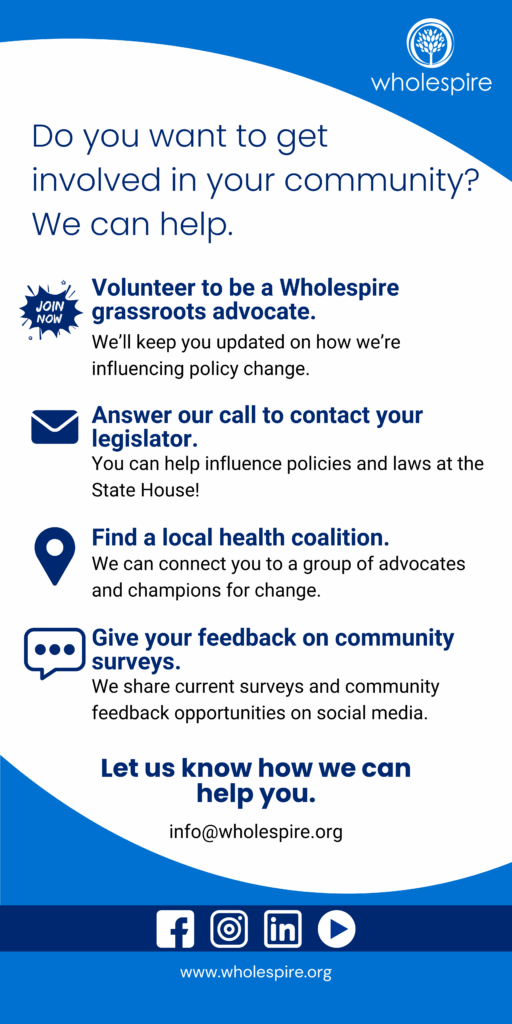The health of a community can depend on the civic participation of community members in the decision-making process. There are a wide range of activities that foster community well-being, strengthen democratic institutions, and empower people to make a difference. Here are some meaningful ways to stay engaged within your community:
Participate in local government meetings
Attend public meetings like city and county councils, school boards and public comment hearings to get first-hand knowledge and stay informed about local issues, voice your concerns, and learn more about the decisions affecting your area. By attending and even speaking up, you contribute to the health of a community by informing policies, especially around community health, education, safety, and infrastructure.
Join community boards and commissions
Many cities and counties have advisory boards or commissions that provide valuable insights on areas like health, transportation, housing, and youth services. Serving on one of these groups not only deepens your knowledge but gives you a direct role in shaping the health of a community through the development lens. Civic bodies often seek people with varied perspectives to bring fresh ideas into discussions. Look for notices in your local newspaper and on social media
Volunteer for local organizations

Volunteering lets you address specific community needs through action. Whether it’s joining a local nonprofit focused on nutrition security, supporting youth programs, or advocating for healthier neighborhoods, volunteering helps communities thrive. Beyond contributing hours, volunteering builds empathy, strengthens connections, and can be a pathway to lasting relationships and the health of a community.
Engage in advocacy and policy change
If you’re passionate about an issue, consider advocating for it. Advocacy can be as simple as writing letters to elected officials, organizing petitions, or collaborating with Wholespire and others to push for policy, systems, and environmental (PSE) changes. Advocacy campaigns can help secure funding for local projects, reduce barriers for underserved groups, or create new opportunities for youth, families, and seniors.
Support local media and stay informed
Staying informed is key to understanding and addressing community needs. Subscribe to Wholespire’s newsletter and local newspapers, watch for community updates, and follow reputable local journalists and organizations on social media. When community members stay informed, they help keep local governments and institutions accountable.
Start or join a community group
Sometimes, small groups of residents can drive meaningful changes. You could start a group or join an existing coalition that advocates for safer parks, works on civic action projects, or promotes physical activity and nutritious food resources. Community groups can bring people together to create solutions-focused action plans, mobilize around shared goals, and ultimately help to make the community a healthier place for everyone.
Mentor youth or participate in youth engagement programs
Youth engagement programs that encourage civic involvement are critical for fostering long-term community health and resilience. By mentoring young people or supporting youth-led initiatives, you help shape a new generation of engaged citizens. If you work with students, engaging them in the policy change process teaches invaluable skills and brings fresh perspectives to the health of a community. Wholespire helps communities engage with youth through The HYPE Project®, coaching and technical assistance.
Get involved with community planning or visioning efforts
Many communities offer residents a chance to weigh in on their long-term vision. Public planning sessions, workshops, and surveys allow residents to give input on future projects, like new parks, affordable housing, and transportation networks. Oftentimes, state agencies, like the SC Department of Transportation, and other entities post these notices on social media. Your ideas can influence how your community develops and ensure it meets the needs of all residents.
Encourage civic engagement in your network
One of the best ways to expand civic engagement is to inspire those around you to get involved. Encourage friends, family, and neighbors to attend meetings, volunteer, or even run for local office. By building a network of active citizens, you contribute to a culture where civic participation becomes a shared, community-wide responsibility.
Civic engagement is a continuous commitment to improving our communities and creating a more inclusive, responsive society. Whether by volunteering, advocating for policy change, or mentoring youth, every action we take contributes to the health of a community and creates a lasting legacy of positive change. So, let’s get involved, stay engaged, and inspire others to join us in building a healthier South Carolina!
